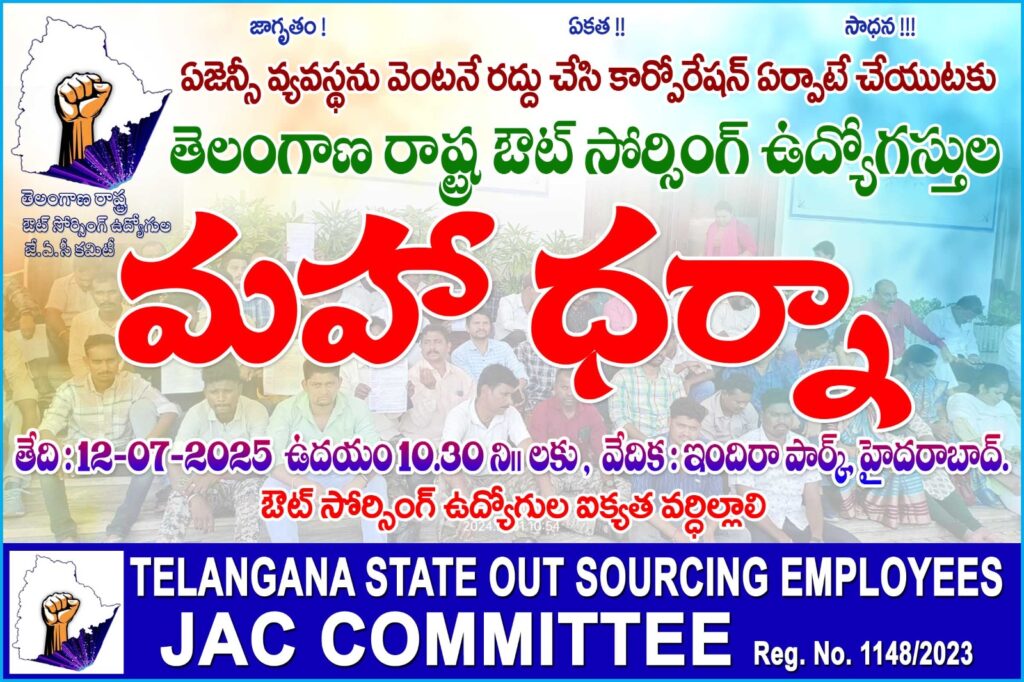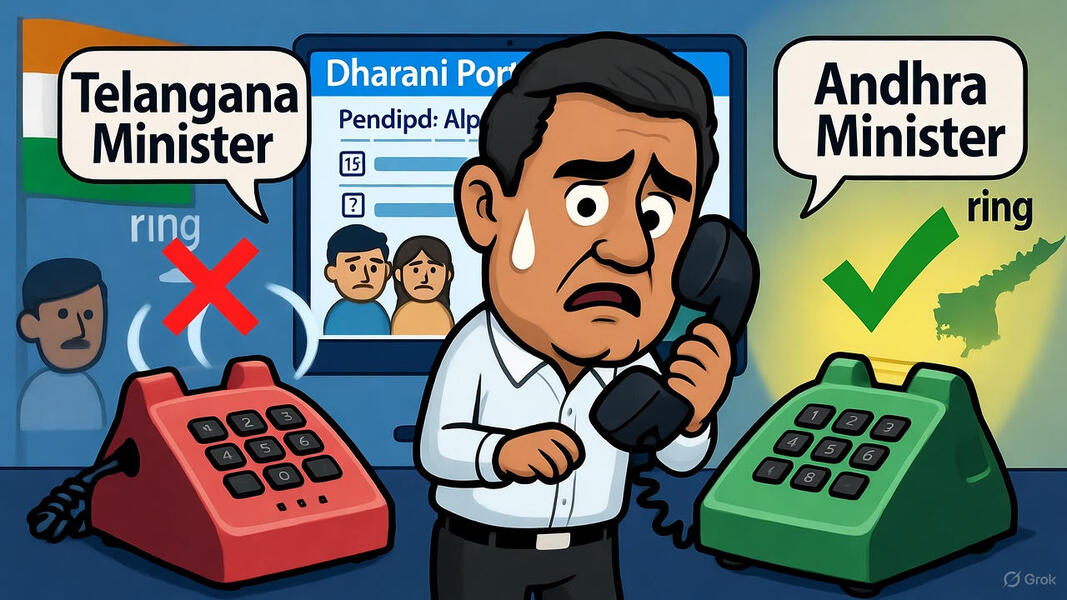Article Today, Hyderabad:
Despite constitutional guarantees and Supreme Court rulings, thousands of outsource employees in Telangana continue to face wage discrimination. While they perform the same duties as regular staff, their salaries remain drastically lower. The idea of “equal pay for equal work” is still out of reach, even after 75 years of the Indian Constitution. Governments are exploiting labour under the banner of outsourcing, with little accountability.
Supreme Court Stance: Exploitation is Unacceptable
In the 2016 Jagjit Singh case, the Supreme Court clearly stated that workers performing the same tasks must receive equal pay, regardless of whether they are permanent or temporary. The court emphasized that paying outsourced employees less is not only unjust but amounts to exploitation. Justice Khehar observed that workers accept low wages out of necessity, often sacrificing dignity and self-respect to support their families. Such disparity, the judgment noted, is an oppressive practice that violates basic human rights.
Ignoring Court Orders, Denying Justice
Though the judiciary has issued several rulings, including the 2021 Mohanlal case, enforcing equal pay and employment rights for temporary staff, implementation remains weak. Court directives are routinely ignored, leaving outsource employees trapped in insecure and underpaid jobs. The government, expected to uphold the law, is instead contributing to this systematic injustice.
The Plight of Telangana’s Outsource Employees
There are nearly two lakh outsource employees working across departments in Telangana. Many of them allege harassment by senior officials and complain of poor working conditions. According to the State Outsourcing Employees JAC, salaries are delayed for months, and statutory benefits like Provident Fund (PF) and Employees’ State Insurance (ESI) are not deposited regularly. The employees have urged the government to end agency-based contracts and take direct responsibility for wage payments.

JAC’s Demand for Agency-Free System
The Joint Action Committee (JAC) of Telangana’s outsourcing employees is demanding that the state government follow Andhra Pradesh’s example. There, the agency model was scrapped and a government corporation was formed to manage outsourcing employment. This has ensured timely payments and job security. Telangana’s JAC is calling for a similar corporation to be established to end exploitation and ensure transparency in recruitment and remuneration.

Employees Seek Respect and Recognition
Puli Lakshmaiah, president of the Telangana State Outsourcing JAC, stressed that outsourcing employees play a critical role in delivering public services. He called for the government to absorb them into regular services and offer fair compensation. “We are always unsure if our jobs will continue. We deserve job security and dignity,” he said.
Corporation Model Can Ensure Timely Wages
Treasurer Muniganti Jagadish highlighted that forming a corporation would benefit both the government and employees. It would increase wages by Rs.3,000–Rs.5,000 per person without burdening the government. It would also ensure timely payment of salaries and social security benefits like ESI and PF. He added that such a system would allow workers to live with dignity and without fear of sudden job loss.

Conclusion: Time for Policy Reform
Outsource Employees are the silent workforce behind government schemes and public services. While they carry the same responsibilities as their permanent counterparts, they continue to be denied fair treatment. A comprehensive reform, beginning with the end of the agency system and formation of a government-backed corporation, is the need of the hour. Justice, after all, begins with equality at work.



